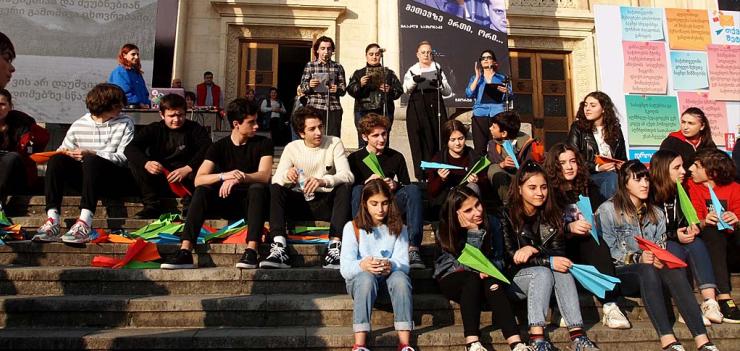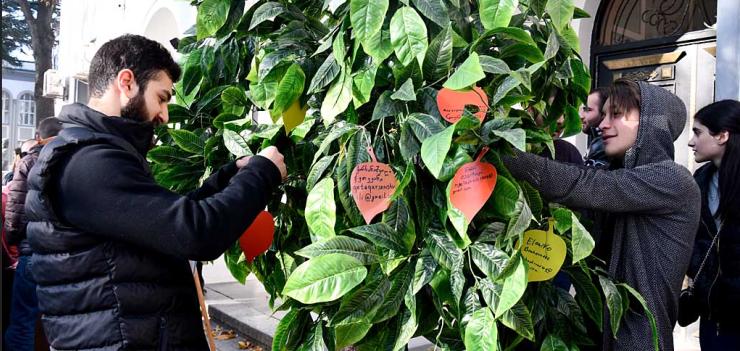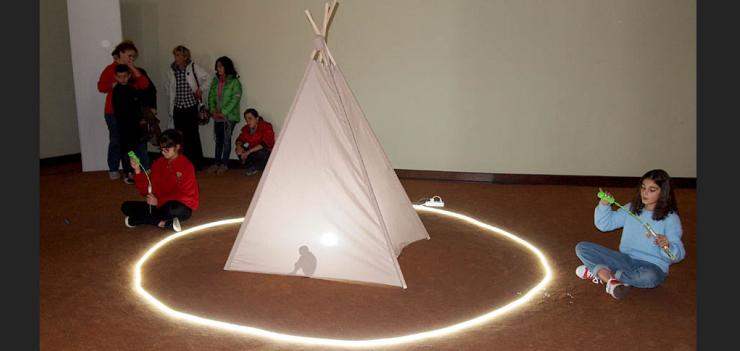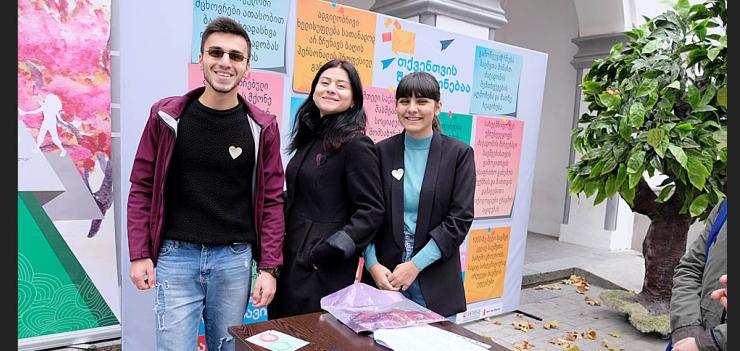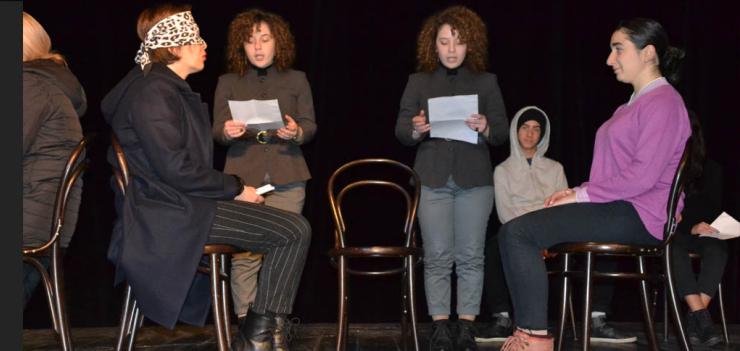Like mirrors, children reflect the society they live in and are images of what happens around them. This is why heart-shaped mirror pins were chosen as the symbol of the regional civic campaign on violence against children. From November 20 to 22, Civil Society Organizations (CSOs) and volunteers in Telavi, Gori, and Kutaisi carried out the campaign labeled “You’ve Got a Message” to raise public awareness of various forms of violence against children, and the problems related to prevention and elimination of this problem in the country.
Every child has the right to get quality healthcare and education, be strong and secure, and have the same opportunities as other children do. State programs and services in Georgia fail to secure these basic rights. Parents and society at large also violate the rights of children frequently. This is demonstrated by a number of studies conducted by the United Nations Children’s Fund (UNICEF) over the past few years in Georgia:
Violence against children and its prevention: According to a 2016 Survey, 60% of the general public think that harsh parenting is a more effective method of raising a child than using a non-violent method; the Social Service Agency has only 11 psychologists to provide psycho-social rehabilitation services to child victims of violence; the practice of revealing and responding to cases of violence against children is very challenging as well.
Poverty: According to the 2017 Welfare Monitoring Survey, every fifth child lives in a household in which household members’ basic needs are not met.
Pre-school education: According to 2018 survey data, 62.5% of municipalities spend 10 GEL annually (on average 0.73-1.11 GEL monthly) for developmental toys and educational resources per child in kindergartens. 44% of kindergarten staff does not possess professional competencies.
In order to capture public attention for these and other child-related problems in Georgia, CSOs and activists engaged wider society in a variety of interesting events:
At the campaign opening ceremony on the 20th of November, the public gathered at the central squares of Telavi, Gori, and Kutaisi, where organizers read out the Campaign Manifesto that clearly explained the focus and goals of the event and then invited citizens to write their notes or requests to the local municipality on a special banner. At the same time, outdoor digital screens displayed children’s emotional messages to adults. The messages, excerpts from real-life stories, concerned violent methods of upbringing and humiliating attitudes the children face at schools and kindergartens and in their families. This immediately gained public attention and engagement both at the event and later on social media.
To make the problem more visible, an art installation “Circle of Violence” was staged. Aside from the visual elements, viewers could listen to the sounds of violence and the humiliating expressions that adults use towards children.
The main highlight of the second day was theatrical monologues in which children and adults told real stories of child abuse, bullying, and domestic violence. A lively discussion followed the monologues with the participation of school students, teachers, and parents. On the same day, volunteers distributed information cards entitled “Myths and Realities of Raising Children” to people on the streets. The cards featured the most widespread misconceptions about childrearing and the correct methods to counter them.
A discussion “What would you buy for 73 tetri?” was held on the third day of the campaign to highlight the challenges that children face in kindergartens. 73 tetri is the amount that the majority of municipalities spend on developmental toys for children in public kindergartens. A photo exhibition on the way children see kindergartens was also displayed at the discussion space.
During the campaign, public signatures were collected on a statement requesting that both local and central governments fulfill their obligations imposed by international conventions, and develop and/or improve the appropriate child welfare services. These statements were then submitted to the Telavi, Gori, and Kutaisi city halls. “The purpose of the campaign is to highlight the role of the local and central governments in improving children’s well-being. It’s impossible to achieve any improvement without government intervention” – said Keti Kalandadze, representative of the “Coalition for Children and Youth”.
The “You’ve Got a Message” campaign was carried out with financial support from EWMI ACCESS and Save the Children in Georgia, and organized by “Coalition for Children and Youth” along with its regional partner CSOs: Society “Biliki”, ‘Social Umbrella”, Network of Centers for Civic Engagement, Regional Civil Society Network, Civil Development Agency, and PITA project. The campaign involved up to 100 youth volunteers as well.

